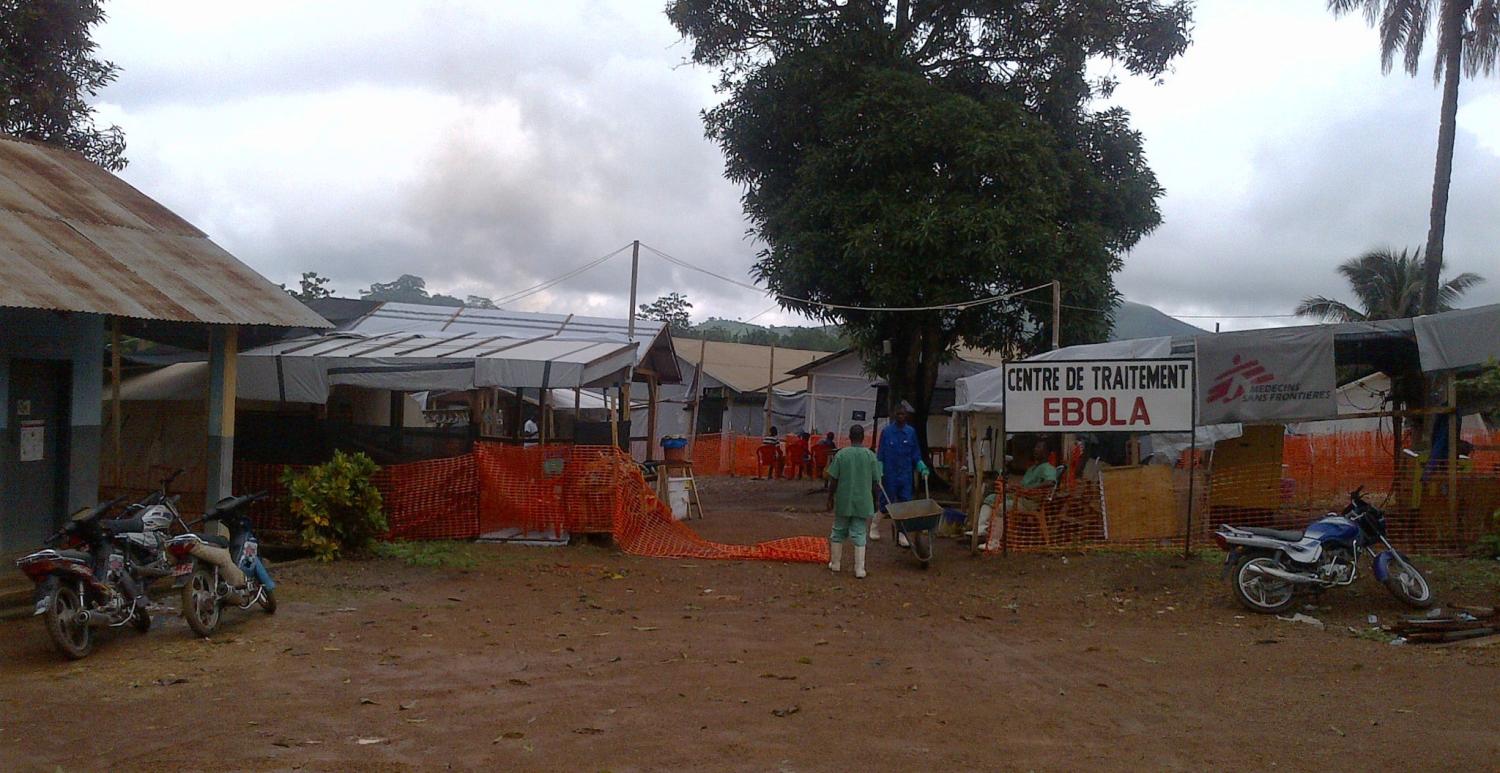The World Health Organization (WHO) said today that it is temporarily pulling its staff from a part of Sierra Leone where one of its deployed workers was sickened by the Ebola virus, as health officials battling the outbreak struggled with problems caused by bans on airline flights to the affected countries.
In a press release e-mailed to journalists the WHO said it pulled health workers from Kailahun, one of the outbreak hot spots, to Freetown, Sierra Leone's capital, after announcing over the weekend that one of its workers was infected.
The worker is reportedly an epidemiologist from Senegal who is with the Global Outbreak Alert and Response Network (GOARN) and was in Kailahun district tracing EVD cases, according to earlier reports. Kailahun district is not far from where the borders of Sierra Leone, Guinea, and Liberia meet—a region that global health officials have called one of the outbreak's most intense hot spots.
WHO team 'exhausted'
Daniel Kertesz, MD, MPH, the WHO representative in Sierra Leone, said in the statement that the move was the responsible thing to do and that the field team has been through a traumatic time during the incident. "They are exhausted from many weeks of heroic work, helping patients infected with Ebola. When you add a stressor like this, the risk of accidents increases."
"We recognize that this will interrupt the work in the field for the short term, but it ensures we protect health workers and help the community over the longer term, " Kertesz said. "We are working rapidly to ensure we can return to the field as quickly as possible."
In a related action, the WHO said it sent another team to the area, which borders Guinea, to review how the health worker was infected, what the living and working conditions are like for employees, and what factors increase the risk of infection. Once actions are taken to address the issues, the agency said, it will move the team back to Kailahun, and for now, lab work will be conducted at the center in Kenema.
Frieden says situation worse than he feared
US Centers for Disease Control and Prevention (CDC) Director Tom Frieden, MD, MPH, was in Liberia today to observe the outbreak and its response, and met with the country's president and other officials. He told Atlanta's WSB Radio that the outbreak is worse than he feared.
"This is an absolute emergency," Frieden said, adding that the top priority is getting people into treatment to stop the spread of the virus. He said product shortages are starting to be felt, and the response efforts of the CDC and its partners are being hobbled by flight reductions and countries not allowing aircraft to refuel.
While visiting Liberia, Frieden said he's seen Ebola patients with nowhere to go and an increasing number of corpses put into the street. He is scheduled to visit Sierra Leone and Guinea, as well.
At a United Nations (UN) briefing yesterday, officials repeated WHO warnings that flight limitations in and out of the outbreak countries are hobbling response operations. In a statement, UN spokesman Stephane Dujarric said, "It [flight restriction] is not an optimal measure for controlling the import of Ebola virus disease. The measure does not reflect what is known about the way in which the virus passes between people."
Flight bans choke response
He said the restrictions are impeding the movement of international experts involved in disease control efforts, hindering the deployment of workers from aid groups such as Doctors Without Borders, and severely hampering the flow of equipment and supplies to the area.
After a 2-day meeting, a high-level UN delegation promised to step up response operations in Sierra Leone, the WHO said yesterday in an e-mail statement.
David Nabarro, MD, the UN secretary-general's Ebola response coordinator, said in the statement that the outbreak is still advancing in parts of Sierra Leone. "Our partnership with Sierra Leone to end the Ebola outbreak means upgrading all the UN is doing to get the scale-up required."
However, David McLachlan-Karr, UN resident coordinator for Sierra Leone, said the surge is possible only if the flights return to Sierra Leone.
In other developments, a draft blueprint of a response strategy that the WHO is expected to release this week estimates that more than $430 million will be needed to control the outbreak, Bloomberg News reported yesterday. Goals include reversing new case trends in 2 months and curbing transmission in 6 to 9 months, according to the report, which calls on governments, developments banks, the private sector, and in-kind contributions to support the funding.
The African Development Bank (ADB) on Aug 19 approved $60 million as part of a $210 million package to help strengthen West Africa's public health systems in response to the EVD outbreak, according to an ADB statement.
See also:
Aug 26 WSB Radio report
Aug 25 UN News Center report
Aug 25 WHO African regional office statement
Aug 25 Bloomberg News story
Aug 19 ADB statement
Aug 25 CIDRAP News story "WHO: Medical worker infections and shortages hamper Ebola response"



















